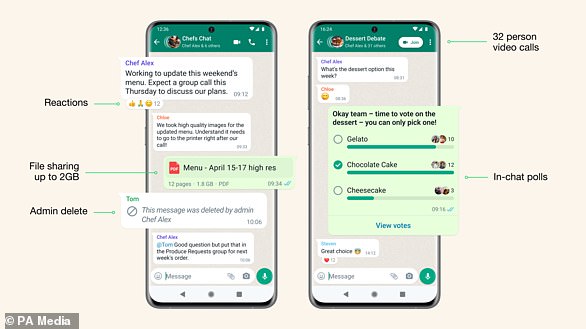WhatsApp to let users connect to the app via proxy servers
>
WhatsApp is letting its users connect to the app using ‘proxy servers’ – intermediary gateways between users and web servers that let them go online.
From today, WhatsApp users globally can head to the app’s settings to enter the name of a proxy server and use it to access the internet.
Proxy servers work as alternative gateways between a user and the internet when traditional connection methods and servers have been shut down or cut off.
Allowing WhatsApp users to connect to proxy servers will help users connect in case of internet shutdowns, as recently seen in Iran.
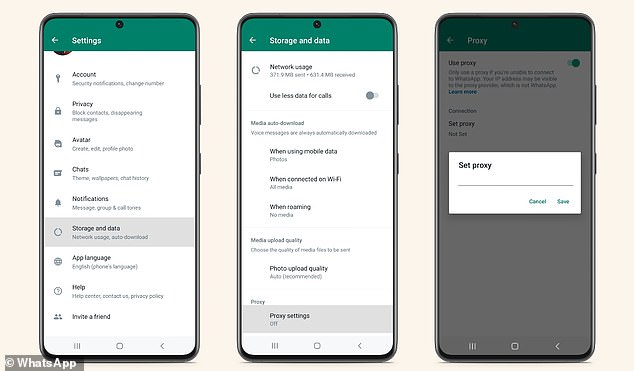
WhatsApp is letting users connect to the messaging app via proxy servers for the first time to allow users to stay online even when an internet shutdown or block is in place
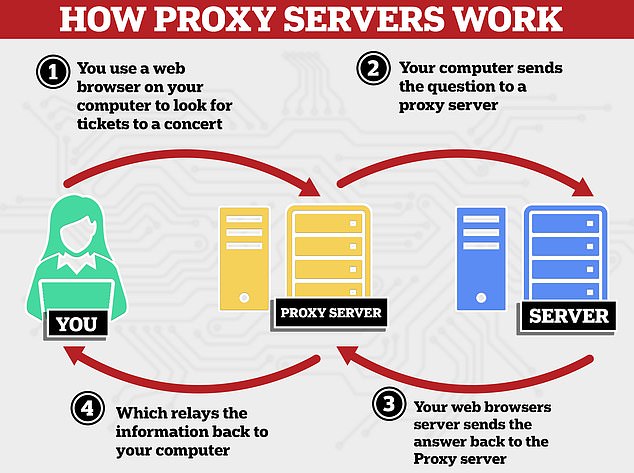

Proxy servers are intermediary gateways between users and web servers that let them go online
Internet shutdowns are intentional disruptions to internet access and digital communications, often done by governments to silence dissidents online.
The Iranian government used internet shutdowns to stop online access following nationwide protests over the killing of Mahsa Amini in September.
WhatsApp, which is owned by Mark Zuckerberg’s company Meta, said in a blog post that many people are denied the ability to reach their loved ones because of these shutdowns.
‘Our wish for 2023 is that these internet shutdowns never occur,’ WhatsApp said in the post.
‘Disruptions like we’ve seen in Iran for months on end deny people’s human rights and cut people off from receiving urgent help.
‘Though in case these shutdowns continue, we hope this solution helps people wherever there is a need for secure and reliable communication.’
Users need to head to Settings and tap ‘Storage and data’ followed by ‘Proxy settings’ to toggle the option on and enter a proxy server address.
Once confirmed, it will provide the necessary connection between the user and the website or service that they wish to access.
WhatsApp said many proxy servers are set up by volunteers and organisations around the world to let people communicate freely.
Nevertheless it’s created a webpage to guide everyday users to set up a proxy server and ‘help others connect’.
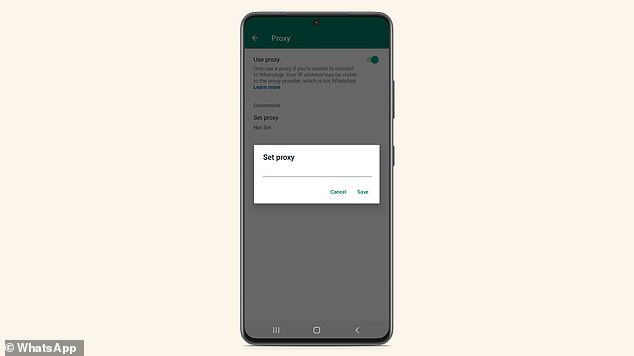

The option to connect to a proxy server – is now available in the settings menu for everyone running the latest version of WhatsApp
Even with proxy servers, messages on WhatsApp will be still be protected by a security standard that it uses called end-to-end encryption.
End-to-end encryption ensures only the two participants of a chat can read messages, and no one in between – not even the company that owns the service.
WhatsApp, which was bought by Zuckerberg’s firm in 2014 for about $19 billion, says every private message sent using WhatsApp is secured with end-to-end encryption by default.
Despite this, end-to-end encryption has not been a standard on other Meta platforms.
Facebook, for example, only began testing end-to-end encryption as default on the Messenger app last year.
‘Connecting via proxy maintains the same high level of privacy and security that WhatsApp provides,’ WhatsApp said.
‘Your personal messages will still be protected by end-to-end encryption – ensuring they stay between you and the person you’re communicating with and are not visible to anyone in between, not the proxy servers, WhatsApp or Meta.’
WhatsApp regularly introduces new features and tools to the app to tweak the user experience.
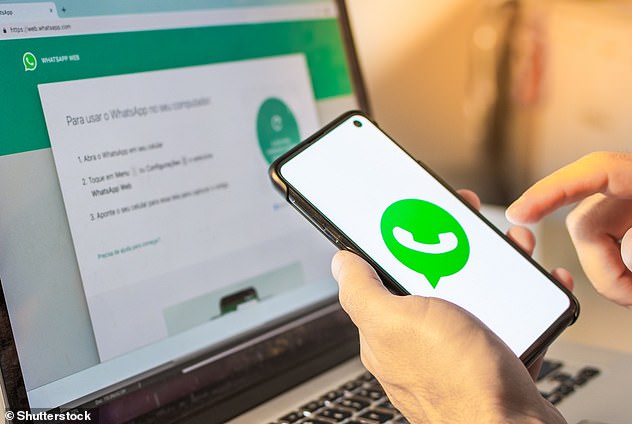

The feature within WhatsApp’s settings lets users enter the name of a proxy server and use it to connect to the internet (file photo)
Last month, it started letting users to preview their voice messages before sending them, helping avoid awkward mistakes or re-recording notes all over again.
It also started letting users create personalised avatars on the platform, which has more than 2 billion users globally.
These avatars mean users can create a digital version of themselves from billions of combinations of ‘diverse hair styles, facial features and outfits’.
The avatars can be used as a profile picture or sent in the form of one of 36 custom stickers that reflect different emotions and actions.
Read similar stories here…
Meta will STILL devote 20% of its costs to the metaverse
WhatsApp launches avatars with billions of hair styles and outfits
New WhatsApp tool lets you send yourself notes, reminders and updates

